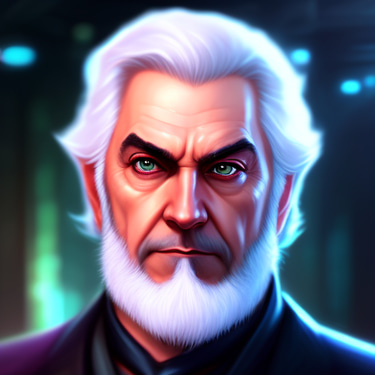The Calm After the Storm – From PIMO to POMO
Part 2 of my story. The calm after the storm — that’s how stories are supposed to go, right? But was that the case for me? Not exactly.
FEATURED ON HOMEPAGEWHAT BROUGHT ME HERE
Oliver
3/20/20257 min read


In the first part of my story, I shared the key events that triggered my awakening:
Tony Morris' sudden removal,
The uncomfortable truths about the disfellowshipping/shunning doctrine,
The unsettling realities of the blood policy.
All of this unfolded within just a few weeks, and I quickly realized that something had to change. But how? What about my family? My wife — the woman I loved and built my life with? This wasn’t just an internal shift; it had the potential to upend everything.
I desperately wanted to hold on to something — to a belief system, to a loving creator, to Christianity itself. The thought of leaving the only life I had ever known was terrifying. Was there even a way out? For a moment, I wondered if I could just pretend — go to meetings for the social aspect and keep up appearances — basically just staying a PIMO. But that idea collapsed as quickly as it came. How could I stand on someone’s doorstep, Bible (or rather iPad with a Watchtower-produced video ready to play) in hand, and preach things I no longer believed? How could I raise my hand at meetings, commenting on things that now felt hollow? And I knew the stigma of “inactivity” all too well — I had been the one silently judging those who drifted away. “You know, they are just spiritually weak.” — you better not associate with such ones!
Honesty has always been paramount to me. And this was not something I could hide from my wife.
I kept researching — I had to be absolutely certain before making any major decisions. But at this point, I was still careful to avoid anything the organization would label as “apostate.” No Crisis of Conscience by former Governing Body member Ray Franz (I actually haven’t read it to this day!). No EXJW YouTube channels. It wasn’t about fearing Satan’s trap — I simply wanted to ensure that my conclusions were based on sources the organization itself couldn’t dismiss. If I was going to challenge what I had believed my entire life, I needed to be able to tell my friends and family, with complete honesty, that my findings came from Watchtower’s own publications, legal records, and historical sources — not from so-called “opposers.” If the truth was on Watchtower’s side, then surely it would hold up under scrutiny.
So I went straight to the Bible itself. For the first time, I read it without Watchtower’s pre-filtered interpretations, seeking out the work of respected Bible scholars rather than relying solely on the organization’s explanations. What I found raised even more questions.
At the same time, I turned my attention to the history of the Watchtower organization — not through apostate sources, but through publicly available archives. I tracked down old publications, purchased past Watchtower books on eBay, and studied court case records. After all, we were always told to examine the origins of things to determine whether they aligned with God’s principles — shouldn’t that same standard apply to our own faith?
The more I uncovered, the worse it looked.
The idea that our religion had a pure and divinely guided history was crumbling fast.
Charles Taze Russell, the revered founder of what would become Jehovah’s Witnesses? A doomsday-obsessed eccentric with a failed prophecy track record. His successor, Judge Joseph Rutherford? A dictatorial alcoholic who ruled with an iron fist and whose leadership style was about as Christlike as a corporate takeover.
These weren’t just quirky imperfections—they were massive red flags!
I tried to rationalize it like most Jehovah’s Witnesses do. “People are imperfect. The organization has changed. Things are better now.” But those excuses rang hollow. If Jehovah truly had a one and only organization on earth, would this really be its foundation? I would have expected something far better from God's chosen channel.
Among the many sources that helped solidify my certainty that the organization’s “official” history of Jehovah’s Witnesses was largely a carefully curated mix of misrepresentations and convenient rewrites, one stood out: The Watchtower History YouTube Channel.
When I first came across it, I noticed that it was run by Jeff and Paul—two never-JWs. By Watchtower’s own definition, that meant this wasn’t apostate content. No “bitter ex-members,” no “mentally diseased” apostates—just well-researched history.
Their Rutherford’s Roadmap discussion series was a game-changer. Every Jehovah’s Witness should be required to watch it. As I followed along, I meticulously fact-checked their sources, cross-referencing old Watchtower publications and even hunting down older books on eBay to confirm what I was seeing. This was real. Even if someone wanted to argue that “apostates manipulate information,” the idea that they could somehow forge decades-old Watchtower literature was laughable.
But I didn’t stop there. The more I learned, the more I needed to know. I started digging even deeper into some of the subjects they covered, only to find even more evidence that Rutherford and the Watchtower organization of his time were not divinely guided at all. Instead, they seemed to be following the same bizarre conspiracies and pseudoscience that were circulating in their era.
It was absolutely eye-opening — so much so that I reached out to Jeff to share my own findings. Some of the information I sent even made its way into later videos they produced. Jeff is an incredible person, and I’m deeply grateful to both him and Paul for their work in uncovering and exposing the real history of the Watchtower Society.
The Turning Point: Stepping Down
As I started sharing bits of my research with my wife, she was cautious. She knew how obsessive I could get about things and probably thought I was going a little overboard. But I insisted — this was too important to ignore.
Our family was part of a medium-sized, English language congregation in a city in Quebec, Canada. The congregation was mostly laid-back and we had been part of it since we moved to the area in 2017. Our family was always very appreciated and involved in lots of congregation activities. Many of the people there weren’t just fellow Witnesses; they were our friends, our family. That made everything even more complicated
By the end of April 2023, I had informed the local elders that I wanted to step down as a Ministerial Servant. I just couldn’t do it anymore. For years, I had genuinely enjoyed my responsibilities — researching for meeting parts, preparing public talks, being useful to the congregation. It felt natural to pursue “spiritual advancement,” with the expectation of eventually becoming an elder. But behind the scenes, my family was burnt out.
The pandemic years had taken a toll. I was one of basically just two responsible brothers keeping the congregation’s AV system and Zoom running during meetings. It was a privilege, sure, but it became frustrating when many others — who could have helped much more — didn’t really step up. On top of that, my wife and I were dealing with the challenges of raising two teenagers who struggled with the isolation brought on by the pandemic. Even before my doubts about the organization surfaced, I had already toyed with the idea of stepping down just to ease the burden.
The Circuit Overseer’s Visit
In early June 2023, during the Circuit Overseer’s visit, he and an elder invited my wife and me to the Kingdom Hall for a shepherding visit. The new CO seemed like a decent enough guy. After we shared our situation (minus my doubts), and after the elder showered us with praise, the CO confidently suggested that we should be interviewed at the next assembly. They certainly know how to make you feel special!
Then, as the visit wrapped up, the CO said, “See you Friday evening for the meeting with the elders and ministerial servants.” My wife immediately asked, “Does he still have to come? Even though he’s stepping down?”
The elder sitting next to the CO suddenly looked uncomfortable. It was clear the elders had never informed the CO about my decision to step down. The elder sheepishly admitted that I had requested to step down. The CO told me he’d call me the next day to discuss it further — to see if he could convince me to stay on.
That call never came.
I assume the elders thought they could just keep me as a Ministerial Servant, stop giving me assignments for a while, and wait for me to “come back stronger” in a few months. But I had already made up my mind.
Before leaving, the CO encouraged me to do a personal study project with my wife. I thought, Sure, why not? So I gave my research a title:
“Why Can We Trust the Faithful and Discreet Slave?”
And after months of research, the answer was crystal clear: We can’t.
It took a while, but eventually, the congregation was officially informed that I was no longer serving. And what a relief it was.
By that summer, I had already told my wife that I believed we were in a cult. I shared my plan to fade away quietly, to stop attending meetings. At first, she reacted with the standard JW response: “Don’t worry, Jehovah sees your heart.” But little by little, as I kept sharing my findings, reality started sinking in for her as well.
Her breaking point? Realizing that she was now free — free to pursue her interests in politics, in real community work, in things that actually help people instead of just standing at a cart handing out Watchtowers.
That was her “Hallelujah” moment. She never looked back.
What About Everyone Else?
I kept my mouth shut for the most part. I wasn’t looking to shake anyone’s faith — I knew the risks of being labeled an “apostate.” But there were two exceptions.
As the months passed, the elders started noticing our absence from meetings and field service. One elder—who had been present during the CO visit — called me up to meet for lunch “as a friend.”
I knew better than to say too much, but I did open up about some things. I explained that I had researched the history of the organization in depth and that what I found was deeply unsettling. I told him that I couldn’t unsee what I had learned. That no matter how much I wanted to, I couldn’t just flip a switch and force myself to believe again.
I saw his eyes well up with tears.
He had no answers.
The Final Fade
For the next few months, I kept up minimal attendance — mostly on Zoom. But whenever I was physically at the Kingdom Hall, it was because, being the people-pleaser that I am, I felt obligated to help with AV. My closest friend had taken over the AV responsibilities after the pandemic, and I didn’t want to let him down.
But I knew my time was up.
By the fall, I told my friend that I couldn’t do it anymore — my conscience wouldn’t let me. Instead of arguing, he encouraged me to make a decision and stick to it.
And so, I did. My last in-person meeting was at the end of November 2023. I logged into maybe one or two Zoom meetings in December. By January 2024, I was fully POMO.
But of course, leaving isn’t that simple. How would my family and friends react? How would the elders handle it?
2024 had some surprises in store.
And that’s where I’ll pick up in the next part of my story.
